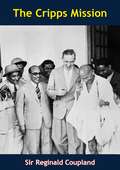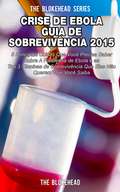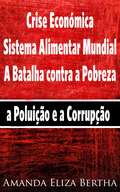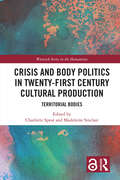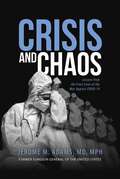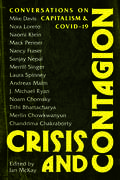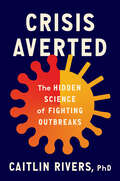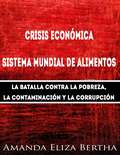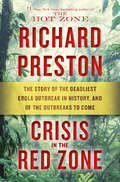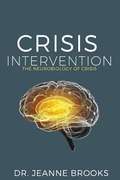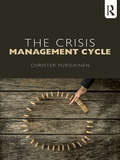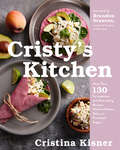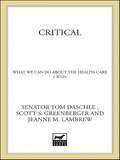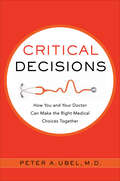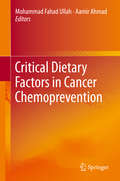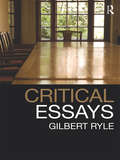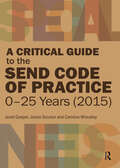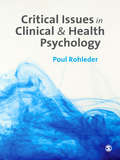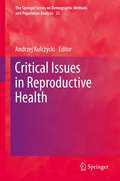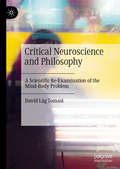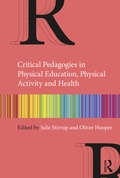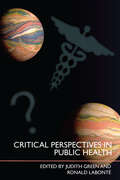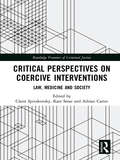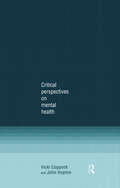- Table View
- List View
Criminal Law, Philosophy and Public Health Practice
by A. M. Viens John Coggon Anthony S. Kessel A. M. Viens John CoggonThe goal of improving public health involves the use of different tools, with the law being one way to influence the activities of institutions and individuals. Of the regulatory mechanisms afforded by law to achieve this end, criminal law remains a perennial mechanism to delimit the scope of individual and group conduct. Utilising criminal law may promote or hinder public health goals, and its use raises a number of complex questions that merit exploration. This examination of the interface between criminal law and public health brings together international experts from a variety of disciplines, including law, criminology, public health, philosophy and health policy, in order to examine the theoretical and practical implications of using criminal law to improve public health.
The Cripps Mission
by Sir Reginald CouplandThe author of this book had been for several months in India studying the Indian constitutional problem when the Cripps Mission arrived. At Sir Stafford Cripps' request, Professor Coupland joined his staff, and this book is the result of close personal observation of the Mission at work, reinforced by a thorough knowledge at first hand of the background issues out of which the Cripps Mission was born.With admirable brevity and clarity Professor Coupland traces the course of events in India from the outbreak of the present war, through the "August Offer," the answering "Sapru Proposals," the arrival of Sir Stafford Cripps with the Draft Declaration, down to the final rejection of the Draft by all political parties. By a careful analysis of the attitudes of Congress and the Moslem League, as well as those of the minority groups, and the sharp divisions of opinion between opposing factions within the parties, the author is able to show why the negotiations, begun and carried on with high hopes on both sides, eventually broke down. The story of the Cripps Mission is told without bias by a man who cannot regard it as a complete failure, since for the first time in the history of Anglo-Indian relations, the essential sincerity of the British government in general and its emissary in the person of Sir Stafford Cripps in particular was in the main not questioned by the Indian people or their leaders.
Crise de Ebola - Guia de Sobrevivência 2015
by The BlokeheadQuando se trata de notícias sobre o vírus Ebola, muitas pessoas tornaram-se extremamente amedontradas de que o país está lidando com uma epidemia de Ebola em oposição a vários casos isolados de Ebola. Na verdade, muitas pessoas temem que uma pandemia de Ebola em todo o mundo esteja prestes a acontecer. Como resultado, as pessoas estão se voltando para praticamente qualquer via possível para encontrar mais informações sobre o que eles precisam fazer para proteger a si e seus entes queridos. Este guia de sobrevivência de sete partes de Ebola pode ajudá-lo a aprender as coisas que você precisa saber sobre a doença e o que fazer, a fim de proteger a si e sua família.
Crise Económica: Sistema Alimentar Mundial – A Batalha contra a Pobreza, a Poluição e a Corrupção
by Adelaide Franco Nikolic Amanda Eliza BerthaO sistema alimentar mundial está em sério risco. As pessoas estão a morrer à fome porque a sua comida está a ser acumulada, vendida a outros países ou não está, simplesmente, a ser produzida. Este livro aborda a crise económica, dando especial atenção ao sistema alimentar mundial.
Crisis and Body Politics in Twenty-First Century Cultural Production: Territorial Bodies (Warwick Series in the Humanities)
by Charlotte Spear Madeleine SinclairThe twenty-first century has been deemed the “Age of Crisis”. We are witnessing the catastrophic unfolding of environmental crisis, financial crisis, pandemic and conflict. But are we to understand these crises as new phenomena? Is their seemingly simultaneous existence purely coincidental? Or rather do they instead form part of a singular, historically produced, unfolding crisis, which only today has reached a generalised consciousness? And perhaps most urgently, how far can we separate the crises of human experience from those exacted upon the land?The chapters collected in Crisis and Body Politics in Twenty-First Century Cultural Production: Territorial Bodies deploy the framework of “Territorial Bodies” to address urgent social, ecological and political challenges. Examining themes such as (inter)national bodily governance, racialised bodies, eco-feminist movements, spatial justice and bodily displacement, this collection provides a deeper analysis of the interconnected forms of violence perpetrated against marginalised human and non-human bodies, taking this combined violence as the defining feature of contemporary crisis.
Crisis and Chaos: Lessons from the Front Lines of the War Against COVID-19
by Jerome M. AdamsHard truths and surprising insights about our COVID-19 response from America&’s former top doctor.When COVID-19 began spreading rapidly, the world was taken by surprise. As the ensuing pandemic raged, we faced one constant—a lack of consistent, scientifically sound, and trusted information about dangers, risks, and mitigation strategies that the average person could understand and put into practice to keep themselves and their families safe. Politicians, opportunists, and agenda-driven media personalities spread misinformation for an array of purposes, leaving most of the public scratching their heads, wondering what was true and what wasn&’t. Now, the former Surgeon General of the United States—freed from the many constraints he worked under in public office—reveals critical lessons learned from both mistakes and successes overlooked during the pandemic. He explains what we need to know to create a safer environment for individuals, families, and communities, how we can respond better to the next threat, why we keep making the same mistakes, and why we must promote health equity for all. As Dr. Adams explains, the best public health policies are the ones that begin at home and come about as people in local communities work together to find solutions that fit their specific priorities and needs. Only through this bottom-up, community-driven approach will we be able to turn down the volume on the distracting noise, finally make our way out of and recover from a once-in-a-century pandemic, and prepare ourselves for inevitable future health crises.
Crisis and Contagion: Conversations on Capitalism and Covid-19
by Ian McKayCrisis and Contagion is a selection of fourteen interviews conducted by Ian McKay of the Wilson Institute at McMaster University. Interviews with Nancy Fraser, Mike Davis, Mack Penner, Andreas Malm, and Merrill Singer explore capitalism’s organic crisis and the ways it has made this and future pandemics inevitable. Nora Loreto, Tithi Bhattacharya, Chandrima Chakraborty, Merlin Chowkwanyun, and Sanjay Nepal discuss the experiences of ordinary people in the pandemic. J. Michael Ryan, Laura Spinney, Naomi Klein, and Noam Chomsky explore the long-term effects and likely historical legacy of a pandemic that has changed millions of lives–and, maybe, the trajectory of human civilization. These scholars propose that to understand the impact of Covid-19, we have to understand the conflictual history of capitalism–and to ward off future pandemics, we need to start building a post-capitalist alternative to the disease-generating and highly unequal global neoliberal order. As capitalist forces work to shove what we have learned from the Covid-19 pandemic down the memory hole, Crisis and Contagion offers a must-read for those wanting to seize this moment of change and revolution.
Crisis Averted: The Hidden Science of Fighting Outbreaks
by Caitlin Rivers&“[An] ambitious and... successful attempt to reset our relationship with the field of public health. With a judicious blend of candor, hopefulness and pragmatism, [Rivers] calls out its mistakes, reminds us of its historic accomplishments and emphasizes the need for the discipline to adjust its strategies if its full promise is to be realized.&”—Wall Street Journal"A master class in how we can pinpoint and prevent health crises before they spiral out of control."—Scott Gottlieb, MD, author of Uncontrolled SpreadA fascinating window into the secret life of epidemiology, weaving together stories of triumph and tragedy, with a boots-on-the-ground perspective on how we can avert the next public health crisisThere are few visible markers of the accomplishments of public health. When epidemiologists do their jobs, nothing happens. An outbreak does not grow into an epidemic. A child does not go hungry. A would-be smoker never lights up. In this fascinating window into the secret life of public health, Caitlin Rivers weaves together stories of triumph and tragedy to show that by making sure things don't happen, she and legions of scientists, practitioners, and policymakers change the course of history.We have many of the tools and experiences needed to prevent the next crisis, but as past experiences teach us, the unexpected is always around the corner. We cannot afford complacency, as countless challenges remain, including constantly emerging pathogens, the rapid growth of biotechnology, and the inconsistent cycles of funding for public health programs. Progress can be slow, but the unsung heroes in epidemiology remain focused on their missions. Crisis Averted tells their stories—from the eradication of smallpox in the twentieth century to a battle against mosquito-borne diseases in the Florida Keys to the international safeguards implemented against extraterrestrial germs. By taking a candid look at how we solve problems in public health, Caitlin Rivers illuminates the role of epidemiology in all our lives and lays out the case for what can be accomplished given sufficient vision, leadership, and resources. Crisis Averted is an inspiring and galvanizing call for us to work together towards a healthier, more resilient future.
Crisis económica: Sistema mundial de alimentos - La batalla contra la pobreza, la con...
by José Pedro Galindo Macías Amanda Eliza BerthaEl sistema mundial de alimentos se encuentra en grave peligro. La gente se muere de hambre porque sus alimentos están siendo acaparados, son vendidos a otros países o simplemente no se están produciendo. Este libro le echa una mirada a la crisis económica, con especial atención al sistema mundial de alimentos.
Crisis in the Red Zone: The Story of the Deadliest Ebola Outbreak in History, and of the Outbreaks to Come
by Richard PrestonThe 2013–2014 Ebola epidemic was the deadliest ever—but the outbreaks continue. Now comes a gripping account of the doctors and scientists fighting to protect us, an urgent wake-up call about the future of emerging viruses—from the #1 bestselling author of The Hot Zone, now a National Geographic original miniseries. <P><P> This time, Ebola started with a two-year-old child who likely had contact with a wild creature and whose entire family quickly fell ill and died. The ensuing global drama activated health professionals in North America, Europe, and Africa in a desperate race against time to contain the viral wildfire. <P><P>By the end—as the virus mutated into its deadliest form, and spread farther and faster than ever before—30,000 people would be infected, and the dead would be spread across eight countries on three continents. In this taut and suspenseful medical drama, Richard Preston deeply chronicles the outbreak, in which we saw for the first time the specter of Ebola jumping continents, crossing the Atlantic, and infecting people in America. <P><P> Rich in characters and conflict—physical, emotional, and ethical—Crisis in the Red Zone is an immersion in one of the great public health calamities of our time. Preston writes of doctors and nurses in the field putting their own lives on the line, of government bureaucrats and NGO administrators moving, often fitfully, to try to contain the outbreak, and of pharmaceutical companies racing to develop drugs to combat the virus. He also explores the charged ethical dilemma over who should and did receive the rare doses of an experimental treatment when they became available at the peak of the disaster. <P><P> Crisis in the Red Zone makes clear that the outbreak of 2013–2014 is a harbinger of further, more severe outbreaks, and of emerging viruses heretofore unimagined—in any country, on any continent. In our ever more interconnected world, with roads and towns cut deep into the jungles of equatorial Africa, viruses both familiar and undiscovered are being unleashed into more densely populated areas than ever before. <P><P>The more we discover about the virosphere, the more we realize its deadly potential. Crisis in the Red Zone is an exquisitely timely book, a stark warning of viral outbreaks to come. <P><P><b> A New York Times Bestseller</b>
Crisis Intervention: The Neurobiology Of Crisis
by Jeanne BrooksThis manual is meant to help people through crisis. The author has worked in the mental health field for over thirty years with a specialty in crisis and for the last ten years, she has been training counseling students in crisis intervention. Natural disasters, mass shootings, refugee crises, human sex trafficking, etc. show the growing need for individuals to be prepared to sit with others in their suffering. The need is growing, yet the workers are few. The author has recognized that more and more organizations, disciplines, and ministries are doing crisis intervention with little to no knowledge or understanding of the effects that working with people in crisis has on the crisis worker. This manual will help gain a better understanding of how trauma effects an individual, as well as how working with people in crisis can affect the interventionist. This information can help work more effectively by training the team members in self-sustainment. This Christian perspective of intervention will help crisis interventionist and the agency become more Christ-like in their approach by instilling a confidence and hope in the most horrific of circumstances, while still maintaining strong faith in the goodness of God. The preventative practices provided in this manual will help prevent burnout, compassion fatigue and vicarious trauma for crisis interventionist.
The Crisis Management Cycle: Theory and Practice
by Christer PursiainenThe Crisis Management Cycle is the first holistic, multidisciplinary introduction to the dynamic field of crisis management theory and practice. By drawing together the different theories and concepts of crisis management literature and practice, this book develops a theoretical framework of analysis that can be used by both students and practitioners alike. Each stage of the crisis cycle is explored in turn: Risk assessment Prevention Preparedness Response Recovery Learning Stretching across disciplines as diverse as safety studies, business studies, security studies, political science and behavioural science, The Crisis Management Cycle provides a robust grounding in crisis management that will be invaluable to both students and practitioners worldwide.
Cristy's Kitchen: More Than 130 Scrumptious and Nourishing Recipes Without Gluten, Dairy, or Processed Sugar0
by Cristina KisnerEnjoy an abundance of healthful gluten-free and dairy-free recipes—all inspired by a mother’s passionIn 2019, after a bankruptcy left her family with nothing, Cristy Kisner; her husband, Sebastian; and their five daughters moved from Peru to Roswell, Georgia, to give them a better future and to fulfill Cristy’s dream of opening a healthy café in the United States. When the Covid-19 lockdown came, they never closed their doors, working sixteen-hour days for a year. In March 2021, Brandon Stanton, the creator of Humans of New York, became a regular customer and fell in love with the food at the café and Cristy’s incredible story. He wrote about Cristy and sponsored a fundraiser, and her moving story went viral, allowing the family to stay afloat and continue to live their American dream. The food at Cristy’s Kitchen is gluten-free, dairy-free, organic, nourishing, and thoroughly tasty. Back in Peru, Cristy had developed her recipes after two of her daughters experienced medical issues ranging from allergic rhinitis to digestive problems to an autoimmune disease. They switched to organic ingredients; removed dairy, gluten, and processed foods from their diets; and got each diagnosis under control. Her daughters’ special packed lunches gained the attention of other parents, and Cristy started teaching classes on healthy food prep, which evolved into the dream of having her own bakery and café serving sweet and savory baked goods, prepared foods, and more, many inspired by favorite ingredients from her native Peru. Cristy provides helpful health information and sources on the more unusual ingredients in the book, including those she’s refined into her celebrated gluten-free baked goods. The delicious and healthful recipes in this book include favorites for breakfast, lunch, dinner, snacks, and desserts, including:Golden Milk PancakesSpiced Pumpkin Smoothie Bowl with Caramelized BananasPear, Spinach, and Fennel Soup with Chicken, Avocado, and Cashew ParmesanYucca Gnocchi with Carrot Greens PestoStuffed Poblanos with LambPaleo Molten Lava CakePassion Fruit Super Gummy CandiesThe incredible stories and recipes in Cristy’s Kitchen will inspire you to cook and eat more healthfully, cherish the blessings in your life—and understand the miracles that can happen when love and determination go hand in hand.
Critical: What We Can Do About the Health-Care Crisis
by Tom Daschle Scott S. Greenberger Jeanne M. LambrewA much-needed and hard-hitting plan, from one of the great Democratic minds of our time, to reform America's broken health-care system. Undoubtedly, the biggest domestic policy issue in the coming years will be America's health-care system. Millions of Americans go without medical care because they can't afford it, and many others are mired in debt because they can't pay their medical bills. It's hard to think of another public policy problem that has lingered unaddressed for so long. Why have we failed to solve a problem that is such a high priority for so many citizens? Former Senate Majority Leader Tom Daschle believes the problem is rooted in the complexity of the health-care issue and the power of the interest groups—doctors, hospitals, insurers, drug companies, researchers, patient advocates—that have a direct stake in it. Rather than simply pointing out the major flaws and placing blame, Daschle offers key solutions and creates a blueprint for solving the crisis. Daschle's solution lies in the Federal Reserve Board, which has overseen the equally complicated financial system with great success. A Fed-like health board would offer a public framework within which a private health-care system can operate more effectively and efficiently—insulated from political pressure yet accountable to elected officials and the American people. Daschle argues that this independent board would create a single standard of care and exert tremendous influence on every other provider and payer, even those in the private sector. After decades of failed incremental measures, the American health-care system remains fundamentally broken and requires a comprehensive fix. With his bold and forward-looking plan, Daschle points us to the solution.
Critical Decisions: How You and Your Doctor Can Make the Right Medical Choices Together
by Peter A. UbelWe've all been there, sittinguncomfortably in a paper gownas a doctor impassively describesour prognosis. Sometimes it's simple andtreatable. Other times we get news wecan't fathom and then are faced withdecisions that are literally life and death.In this revolutionary book, physician,behavioral scientist, and bioethicist PeterUbel, M.D., reveals how hidden dynamicsin the doctor/patient relationship keepus and our loved ones from making thebest medical choices. From doctors whostruggle to explain, to patients who failto properly listen, countless factors alterthe course of our care, causing things togo seriously awry.With riveting stories of Ubel's own experiencein the field, his groundbreakingresearch, and his personal journey walkingloved ones through difficult treatmentchoices, Critical Decisions will foreverchange the way we communicate insidehospitals and medical offices, wherethoughtful decision making matters themost. Dr. Ubel has been on both endsof the stethoscope, and in this book,he shows how patients and doctorscan learn to become partners and worktogether to make the right choices. Fromchoosing to get surgery, to discussingthe side effects of a blood pressure medication,we can finally discover the toolsto improve communication, understandthe issues, and make confident decisionsfor our future health and happiness.
Critical Dietary Factors in Cancer Chemoprevention
by Aamir Ahmad Mohammad Fahad UllahThis book focuses on the prophylactic potential of diet-derived factors in primary prevention of cancer. It is written by a group of highly reputed experts in the area of dietary agents and cancer chemoprevention. The translational potential of dietary factors from epidemiological, laboratory and clinical studies as prevention strategy in normal and risk populations is highlighted. The work presents options of routine inclusion of specific dietary regimens for prevention as well as therapeutic strategy for better management through adjuvant interventions in cancer treatment.
Critical Essays: Collected Papers Volume 1
by Gilbert RyleGilbert Ryle was one of the most important and controversial philosophers of the Twentieth century. Long unavailable, Critical Essays: Collected Papers Volume 1 includes many of Ryle’s most important and thought-provoking papers. This volume contains 20 critical essays on the history of philosophy, with writing on Plato, Locke and Hume as well as important chapters on Russell and Wittgenstein. It also includes three essays on phenomenology, including Ryle’s famous review of Martin Heidegger’s Being and Time first published in 1928. Although Ryle believed phenomenology ‘will end in self-ruinous subjectivism or in a windy mysticism’ his review also acknowledged that Heidegger was a thinker of great originality and importance. While surveying the developments in the philosophy of language and philosophical logic, Ryle sets out his own conception of the philosophers’ role against that of his predecessors and contemporaries. Together with the second volume of Ryle’s collected papers Collected Papers Volume 2 and the new edition of The Concept of Mind, all published by Routledge, these outstanding essays represent the very best of Ryle’s work. Each volume contains a substantial introduction by Julia Tanney, and both are essential reading for any student of twentieth-century philosophies of mind and language. Gilbert Ryle (1900 -1976) was Waynflete Professor of Metaphysics and Fellow of Magdalen College Oxford, an editor of Mind, and a president of the Aristotelian Society. Julia Tanney is Senior Lecturer at the University of Kent, and has held visiting positions at the University of Picardie and Paris-Sorbonne.
A Critical Guide to the SEND Code of Practice 0-25 Years (2015)
by Janet Goepel Jackie Scruton Caroline WheatleyYou will find this an indispensable resource if you are involved with children or young people with special educational needs or disability.Uncover the intricacies of statutory rules and responsibilities outlined in the code of practice through our accessible guide, which bridges the gap between policy and real-world application. Engaging case studies and critical insights throughout the book help you to understand and interpret these in context.Professionals and practitioners will be able to identify complexity and dilemmas, understand perspectives that may be different from their own, and consider theoretical frameworks that encourage and support critical thinking and reflection.Whether you're a trainee, teacher, SENCO, or a health and social care professional, this practical guide to the SEND Code of Practice is your go-to, essential companion. Parents, carers and families of these children will also find it invaluable. Get ready to transform theory into actionable insights and make a lasting impact on the lives of those you work with.
Critical Issues in Clinical and Health Psychology
by Dr Poul RohlederThis textbook gives a clear and thought-provoking introduction to the critical issues related to health, illness and disability in clinical and health psychology. Challenging some of the preconceptions of ill-health of the biomedical approach, the book explores how health and illness is often shaped by factors such as culture, poverty, gender and sexuality, and examines how these influences impact on the experience and treatment of physical and mental illness as well as disability. Students are introduced to literature from disciplines other than psychology to provide multiple perspectives on these complex issues.<P><P> Critical Issues in Clinical and Health Psychology is a key textbook for undergraduate and postgraduate students taking courses in health or clinical psychology, as well as for students from other disciplines related to health and mental health care.
Critical Issues in Reproductive Health (The Springer Series on Demographic Methods and Population Analysis #33)
by Andrzej KulczyckiIn this book, leading academics and practitioners in the field of reproductive health address topics such as contraception, abortion, sexually transmitted infections, maternal and prenatal health, sexuality and reproductive rights by examining a number of critical issues in these areas. The authors describe new research, identify gaps and priorities in policy and practice, and illustrate innovative solutions. The book further addresses such current imperatives as understanding the social meanings of emergency contraception, measuring gender-based violence, improving reproductive health governance, strengthening health systems and services, and redressing institutional barriers. The book also assesses how reproductive health programs can be reconfigured to new challenges such as those posed by climate change, vulnerable youth in fragile states, and risks from new infertility treatments. Using a rich and varied set of cases, a broad public health and social science perspective, and novel methodological approaches, this book questions common assumptions, illustrates effective solutions and sets out research, policy, and programmatic agendas for the present and future. This is a comprehensive volume which provides a valuable resource to researchers, educators, practitioners, policymakers and students, as well as anyone studying or advocating for reproductive health.
Critical Neuroscience and Philosophy: A Scientific Re-Examination of the Mind-Body Problem
by David Låg TomasiThis book presents an analysis of the correlation between the mind and the body, a complex topic of study and discussion by scientists and philosophers. Drawing largely on neuroscience and philosophy, the author utilizes the scientific method and incorporates lessons learned from a vast array of sources. Based on the most recent cutting-edge scientific discoveries on the Mind-Body problem, Tomasi presents a full examination of multiple fields related to neuroscience. The volume offers a scientist-based and student-friendly journey into medicine, psychology, artificial intelligence, embodied cognition, and social, ecological and anthropological models of perception, to discover our truest self.
Critical Pedagogies in Physical Education, Physical Activity and Health
by Julie Stirrup Oliver HooperCritical Pedagogies in Physical Education, Physical Activity and Health explores critical pedagogy – and critical work around the body, health and physical activity – within physical education. By examining the complex relationships between policies and practice, and how these are experienced by young people, it elucidates the need for critical pedagogy in contemporary times. With contributions from leading international experts in health and physical education, and underpinned by a critical, socio-cultural approach, the book examines how health and physical education are situated across various international contexts and the influence of policy and curriculum. It explores how health is constructed by students and teachers within these contexts as well as how wider spaces and places beyond formal schooling influence learning around the body, health and physical activity. Finally, it considers what progressive pedagogies might ‘look like’ within health and physical education. Chapters utilise empirical work within the field to explore various topics of relevance to critical pedagogy, drawing on theoretical insights while providing practical applications and concluding with reflection points to encourage readers to consider the relevance for their own contexts. Designed to support pedagogical study in a range of contexts, this book will be of particular interest to undergraduate and postgraduate students, teachers and researchers with an interest in physical education, physical activity and health and the role they play in young people’s lives.
Critical Perspectives in Public Health
by Judith Green Ronald LabontéThis book explores the concept of ‘critical’ public health, at a point when many of its core concerns appear to have moved to the mainstream of health policy. Issues such as addressing health inequalities and their socioeconomic determinants, and the inclusion of public voices in policy-making, are now emerging as key policy aims for health systems across Europe and North America. Combining analytical introductory chapters, edited versions of influential articles from the journal Critical Public Health and specially commissioned review articles, this volume examines the contemporary roles of ‘critical voices’ in public health research and practice from a range of disciplines and contexts. The book covers many of the pressing concerns for public health practitioners and researchers including: the implications of new genetic technologies for public health the impact of globalization on local practice the politics of citizen participation in health programmes the impact of car-centred transport systems on health the ethics of evaluation methods and the persistence of health inequalities. Critical Perspectives in Public Health is organized into sections covering four key themes in public health: social inequalities; evidence for practice; globalization; technologies and the environment. With contributions from a range of countries including the United States, Canada, the UK, Australia and South Africa, it provides an accessible overview for students, practitioners and researchers in public health, health promotion, health policy and related fields.
Critical Perspectives on Coercive Interventions: Law, Medicine and Society (Routledge Frontiers of Criminal Justice)
by Claire Spivakovsky Kate Seear Adrian CarterCoercive medico-legal interventions are often employed to prevent people deemed to be unable to make competent decisions about their health, such as minors, people with mental illness, disability or problematic alcohol or other drug use, from harming themselves or others. These interventions can entail major curtailments of individuals’ liberty and bodily integrity, and may cause significant harm and distress. The use of coercive medico-legal interventions can also serve competing social interests that raise profound ethical, legal and clinical questions. Examining the ethical, social and legal issues involved in coerced care, this book brings together the views and insights of leading researchers from a range of disciplines, including criminology, law, ethics, psychology and public health, as well as legal and medical practitioners, social-service ‘consumers’ and government officials. Topics addressed in this volume include: compulsory treatment and involuntary detention orders in civil mental health and disability law; mandatory alcohol and drug treatment programs and drug courts; community treatment orders; the use of welfare cards with Indigenous populations; mandated treatment of seriously ill minors; as well as adult guardianship and substituted decision-making regimes. These contributions attempt to shed light on why we use coercive interventions, whether we should, whether they are effective in achieving the benefits that are offered to justify their use, and the impact that they have on some of society’s most vulnerable citizens in the names of ‘justice’ and ‘treatment’. This book is essential reading for clinicians, researchers and legal practitioners involved in the study and application of coerced care, as well as students and scholars in the fields of law, medicine, ethics and criminology. The collection asks important questions about the increasing use of coercive care that demand to be answered, and offers critical insights, guidance and recommendations for those working in the field.
Critical Perspectives on Mental Health
by Vicki Coppock John HoptonOver the last forty years, there have been numerous attempts to critique the theory and practice of mental health care. Taking its lead from anti-psychiatry, Critical Perspectives on Mental Health seeks to explore and evaluate the claims of mainstream mental health ideologies and to establish what implications the critiques of these perspectives have for practice. This text will be essential reading for students and those working in the social work and mental health care professions.

